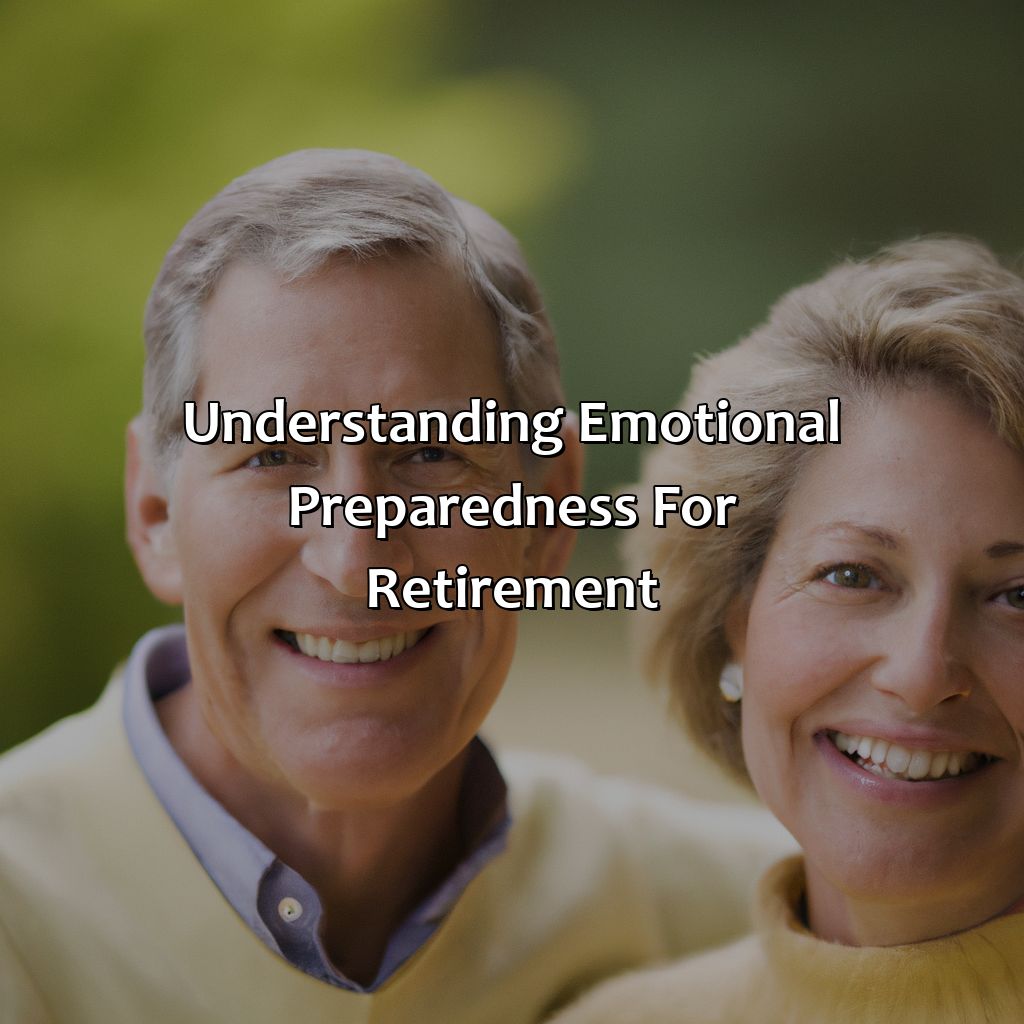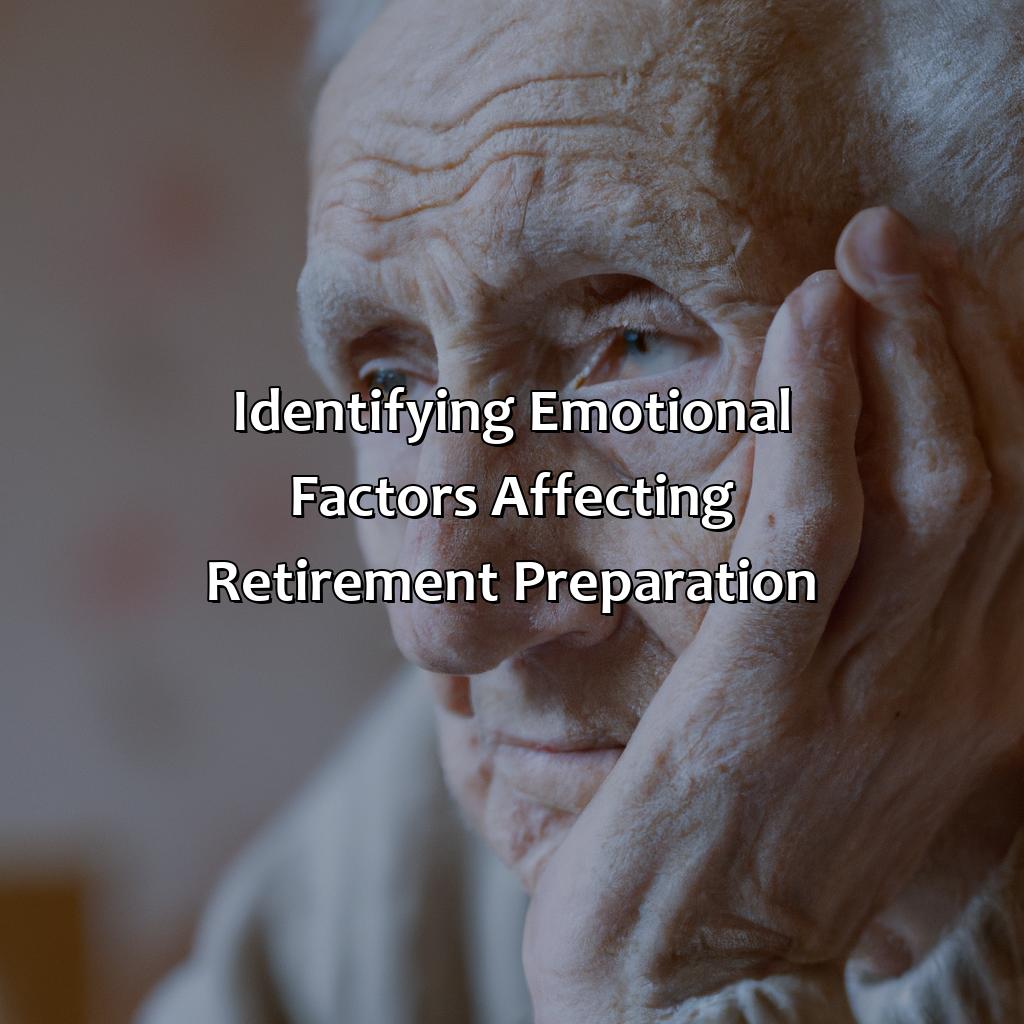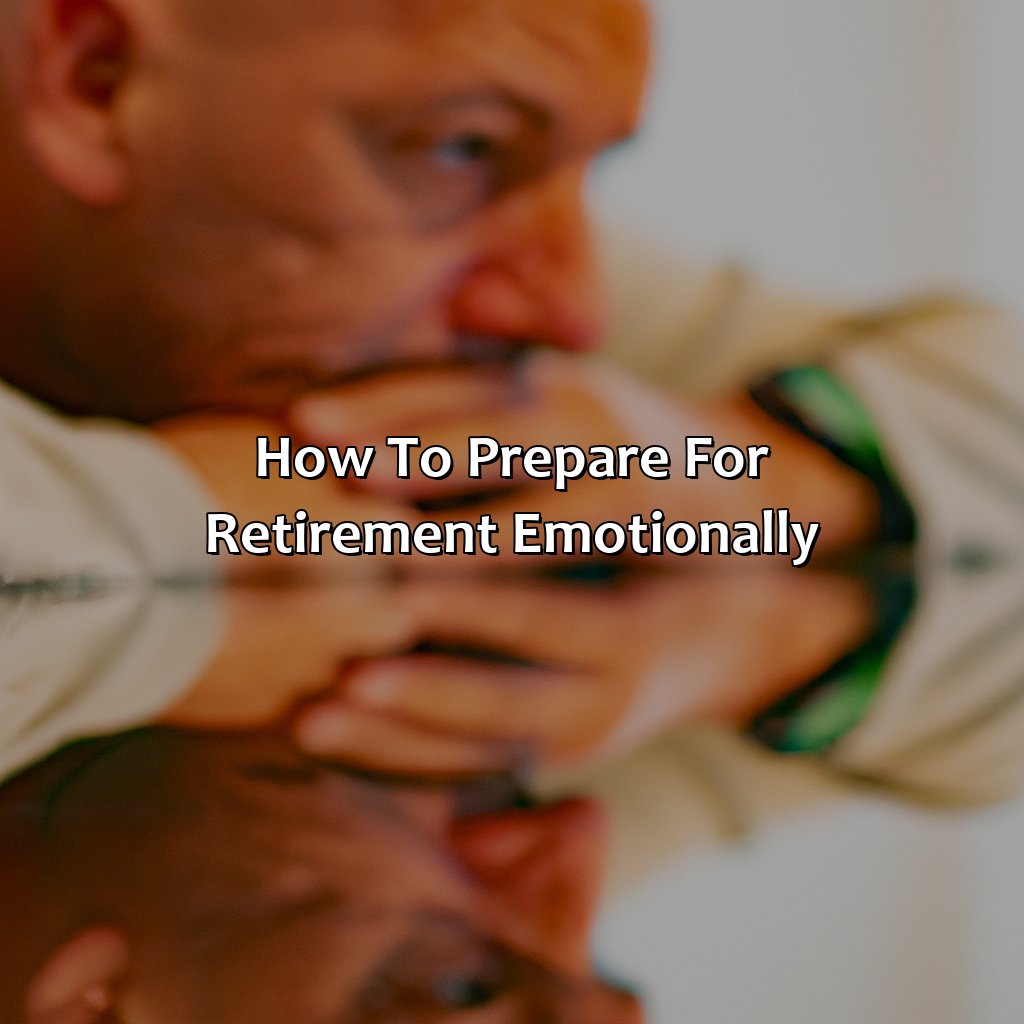How To Prepare For Retirement Emotionally?
Key Takeaway:
- Emotional preparedness is equally important as financial preparedness for retirement. One should be aware of the emotional factors affecting retirement preparation, such as fear and anxiety about the future, loss of identity and purpose after retirement, and coping with physical and mental changes.
- Building social connections, exploring new hobbies and interests, seeking professional counseling and guidance, cultivating mindfulness and gratitude, and planning for post-retirement goals and activities are practical ways to prepare for retirement emotionally.
- Being emotionally prepared for retirement can help individuals cope better with the transition, maintain mental and physical health, and lead a fulfilling life in retirement.
Are you feeling overwhelmed by the thought of preparing for retirement? You’re not alone. In this article, we’ll explore how to get emotionally ready for retirement, so you can start your new life with optimism and excitement.
Understanding emotional preparedness for retirement
Preparing for retirement involves not only financial planning but also emotional preparedness. Understanding the emotional aspects of retirement can help individuals cope with the significant life changes that come with leaving the workforce. This requires recognizing the psychological impact and adjusting one’s mindset accordingly.
It is normal to experience a range of emotions when approaching retirement, including anxiety, excitement, uncertainty, and fear. To address these feelings, individuals should reflect on their motivations for retirement and develop a plan for how they will spend their time. This could involve setting new goals or pursuing long-held interests.
Additionally, building and maintaining social connections is crucial for emotional preparedness in retirement. This includes spending time with loved ones, joining community groups, and volunteering. Keeping a positive attitude and having a sense of purpose can also contribute to overall well-being in retirement.
One example of the importance of emotional preparedness is the story of Jane. Jane had saved diligently for retirement but failed to consider the emotional aspect of leaving her career. She felt lost and without purpose after retiring and struggled to adjust to her new life. Jane eventually sought out counseling and found new hobbies and connections, which brought fulfillment and joy to her retirement.

Image credits: retiregenz.com by Yuval Jones
Identifying emotional factors affecting retirement preparation
Identifying the Emotional Aspects of Retirement Planning
Retirement planning can be overwhelming and emotional. Several factors need to be taken into consideration, including the psychological and emotional aspects of retirement. These factors include fear of change or loss, financial concerns, social isolation, and boredom. These emotions may cause anxiety, stress, and depression, making it harder to navigate the retirement process.
It is essential to identify these emotional factors to prepare for retirement successfully. One must seek support from loved ones or a mental health professional to help with the transition. Additionally, considering a retirement community or hobby can assist in combating social isolation and boredom.
A study by the American Psychological Association found that retirees who participated in physical activity three or more times a week had a 32% lower risk of depression. Therefore, staying active throughout retirement can help improve emotional well-being.
(source: American Psychological Association)

Image credits: retiregenz.com by Adam Washington
Practical ways to prepare for retirement emotionally
As retirement approaches, dealing with emotions can be challenging. Here are practical tips to prepare yourself mentally and emotionally for this life transition.
- It is important to acknowledge and reflect on your feelings regarding retirement. Consider the positive and negative aspects of this major shift in your life. Seek support from family and friends to discuss these emotions and coping strategies.
- In addition, think about new hobbies or interests you can pursue to keep yourself engaged and fulfilled during retirement. Setting realistic goals can give you a sense of purpose and direction.
- Moreover, it can be helpful to plan out your financial situation and create a budget to ease any possible stress related to money.
A personal history: One retiree shared that joining a community group helped him tremendously in adapting to his new life. Being part of a social network, he felt less isolated and found a support system that understood his circumstances.
Preparing for retirement emotionally takes time, but by following these tips and creating a solid plan, you can navigate this change with a positive outlook.

Image credits: retiregenz.com by Yuval Duncun
Five Facts About How to Prepare for Retirement Emotionally:
- ✅ Planning for retirement should start early to reduce stress and anxiety later on. (Source: Forbes)
- ✅ Maintaining a supportive social network is important for emotional well-being during retirement. (Source: Psychology Today)
- ✅ Developing a hobby or passion outside of work can provide a sense of purpose and fulfillment in retirement. (Source: AARP)
- ✅ It’s important to have a financial plan in place to alleviate money-related stress during retirement. (Source: NerdWallet)
- ✅ Seeking professional counseling or therapy can help address any emotional challenges during the transition to retirement. (Source: U.S. News & World Report)
FAQs about How To Prepare For Retirement Emotionally?
What is emotional preparation for retirement?
Emotional preparation for retirement refers to the process of getting ready for the emotional changes and challenges that come with retirement. Retirement can bring about a mix of emotions, including excitement, anxiety, relief, and uncertainty. Emotional preparation involves taking stock of your life, identifying your values, and establishing a plan for the future.
Why is emotional preparation for retirement important?
Emotional preparation for retirement is important because it can help you alleviate some of the stress and anxiety that come with this major life transition. Retirement can be a significant change and may require a significant adjustment. Emotional preparation prepares you to handle the emotional side of retirement, giving you the tools you need to manage any challenges that arise.
How can I emotionally prepare for retirement?
There are many ways to emotionally prepare for retirement. First, take time to reflect on your life and career. Consider your values, interests, and goals for the future. Next, identify activities and hobbies that you enjoy and that will help you stay engaged and connected in retirement. Finally, talk to others who have already retired to learn from their experiences.
What emotions should I expect when preparing for retirement?
The emotions you experience when preparing for retirement can vary widely, but some common emotions include excitement, anticipation, anxiety, and uncertainty. Retirement is a major life transition, and it is normal to feel a mix of emotions as you prepare for it. By acknowledging and addressing these emotions, you can better prepare yourself for a smooth transition into retirement.
What are some tips for coping with the emotional challenges of retirement?
There are many tips and strategies you can use to cope with the emotional challenges of retirement. First, stay active and engaged by pursuing hobbies and interests that give you a sense of purpose and fulfillment. Second, seek support from family, friends, or a professional counselor to help you work through any emotional challenges you experience. Finally, stay flexible and open to new experiences, as this can help you embrace the changes that come with retirement.
How can I stay positive and optimistic during the retirement planning process?
Staying positive and optimistic during the retirement planning process can be challenging, but there are several things you can do to stay upbeat. First, focus on the things that you are looking forward to in retirement, such as spending more time with family, traveling, or pursuing hobbies and interests. Next, maintain a healthy lifestyle by eating well, exercising regularly, and getting plenty of rest. Finally, surround yourself with positive people who support and encourage you as you plan for retirement.





